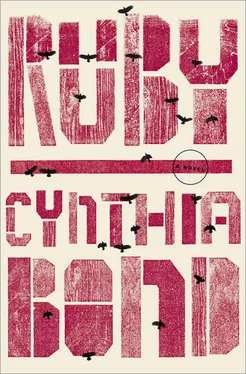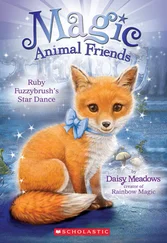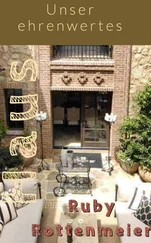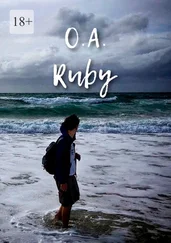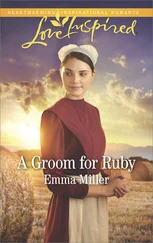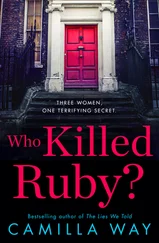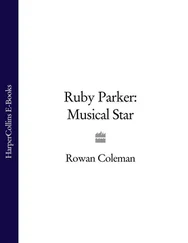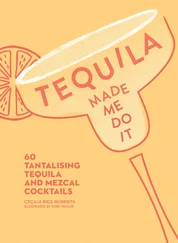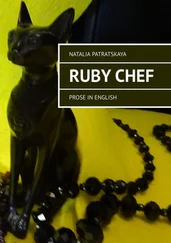For the next weeks Ruby walked through the Big Thicket, becoming. The loose black clusters of muscadine grapes on the vine. The egg-shaped seeded maypop fruit. Pecan trees, horsemint, stones and mud puddles.
She felt the call of the red road and so she became that as well. She felt herself stretching from the dusty passageway that ran through Liberty, Texas, and her grandpapa’s five acres, to access roads, to paved yellow-lined promenades with streetlamps, to Burkeville, to Prairie View, to Katy, to Houston, to Austin, to Galveston and beyond, snaking along the Gulf of Mexico.
She could feel a pair of soft child shoes stepping five miles away in Newton County, ten miles down in Burkeville the thick, callused feet of cane field workers at dawn. Faintly she heard the skipping step of a man who still had the sweet ripe smell of a woman on his fingers. Far away the hushed step of two teenage braided cousins rustling skirts and practicing kissing each other against a shaded tree. She felt the rumble of diesel engines, and a hundred pairs of black rubber wheels barely touching asphalt.
Ruby remained red road long past the owl call of midnight. She slept with gravel for a twining mattress and woven cotton and starlight as her covering quilt.
She had slept and awakened on that same road for four mornings until dusk of the fifth day when Chauncy Rankin’s horse Millie almost kicked her in the head. She rose, covered in dust and straw, to the sound of his cursing crazy women left alone to get themselves killed. She turned to enter her yard as he slid from his worn saddle. But a part of her was still the road, still alive with men and machines and rabbits scurrying at its edges.
Chauncy grabbed the thin fabric about her waist. His angled brown chin tilted down as he studied her blank eyes. Her eyes still holding the road. He called her. He jostled her. He shook her. He turned his nose at the smell of her. Then Chauncy Rankin spit into her face. Her face remained vacant and still. He saw flecks of his saliva dot her dust-covered cheek. The thick fluid slid down her face, revealing feather brown skin. He took his shirt sleeve, licked the corner and began wiping. He then began patting dirt and grass from her dress, her arms, her buttocks, her stomach, her legs.
He peeled off her gray dress and rubbed at her nakedness, wiping her with the damp edge of the shirt. He felt himself rise in his stained trousers, tent the looseness by his zipper. He dragged her to the pump and cranked the handle until water poured, rust brown at first and then clear. He filled a bucket and doused her with it. Once, twice, three times. When she was sufficiently clean, he half carried, half dragged her to a ditch only three feet from the open road. His maroon face twisted above her as he globbed saliva into his palm, wetted his penis and crammed into her.
And yet to Ruby, her dress empty and flat two feet away, the small of her back scratching on a smattering of pebbles, her pelvis and ribs crushing under a sweating full weight, this was a mere irritation. Like an ant crawling on freshly baked corn bread before being flecked away.
Chauncy Rankin could not know that he was only a cinder in her wandering eye, much more preferable to what waited at the bottom of Marion Lake and the shadow in the woods. For Ruby, men were a slight discord that she waited to pass.
She simply kept her limbs numb and her eyes empty as she had since she was fifteen. Since she was twelve. Seven. Six. Five. When the first man had ripped the cotton of her panties, explaining that this is what happens to very bad little girls. When the first man had sun smiled, “Training time …”
When Chauncy Rankin finished he patted her head absently, then left, mumbling a stale warning about lying in roads that grown men had to travel. He climbed on the old horse and trotted down the road.
The road held him as it had the children and the cousins and the hundred spinning black wheels. It did not buck him, or open up and chew him to pieces. The betraying road held him in its open palms. It led him home. It led him to his bed. It would lead him back to her door whenever he cared.
RUBY LOOKED up at the moon high in the sky. The road was still empty and the pains were beginning, the labor that robbed her senses and ripped through her. A little girl, swimming in her body, waiting, gently, tiny hands open. With each birth, she lived the murder of that child. The snap of a neck. The rape of a tiny body. Beatings, bones cracking. Skull smashed against a speeding fist.
She had, over the many years, released them one by one, night after night, her body twisting with pain. Ruby looked at the tiny graves dotting the hill. She had often thought of the small mounds at Ma Tante’s and wondered if the old woman had buried souls there as well. It was time. Ruby screamed with each contraction that ripped through her. Howled and saw a pillow smothering the child as she slept. She wailed and whipped the tall trees around her.
The reaching pines knew that there were legions of spirits tromping through their woods, trapped in thick underbrush, bound beneath the crisscross of branches, in places on the other side of Marion, where sunlight never hit the earth. Some were haints still hanging from the tree they’d been lynched on. Some let the wind roll them like tumbleweeds from one side of the woods to the other. Some were angry and smelled of burned candles, like the rolling dank shadow haunting Bell land, swollen with such hate that it bent the new saplings aside when it passed. It shifted the cush of brown needles and leaves beneath it.
It was this one — Ruby’s Dyboù—who watched Ephram drop into sleep on the bank of Marion Lake.
Yes, the spirit had watched, had seen a thing drop from the man’s pocket as he walked from P & K, a gris-gris doll with a lodestone tied to its back. It smelled of the girl who hid ghosts in her belly. The Dyboù let out a groan, coughing up a swirl of dust, burying the doll before the fool could notice it missing. Then it had followed Ephram, slipping under each foot before it fell, shooting fingers of doubt and shame through the man’s arches, collecting in his testes.
It despised the man and his body still sparking with fireflies of hope, so it crushed the twinkling light between its fingers. Then sat across from him as he slept. Looked into the old, stupid face. Weak , it thought: Fool always been flesh weak .
The Dyboù contemplated Ephram for hours, watching drool steal down his chin. It scorned the fat back of his earlobes. Then it started looking for chinks in his spirit, little holes to jimmy and crack, until they were just wide enough to lean in and sip.
The biggest tear was near the heart, like a run in a woman’s stocking. The Dyboù’s tongue snaked, playfully poking its tip into the tear. Tasting. It wondered why innocence always tasted like peach cobbler. The ghost swallowed deeply. A shudder ran through Ephram’s sleeping body.
That is when the first crow landed. It fluttered down, its talons curling around a branch. Then came another. Another. A parade of black settled about the tree, cawing and purring under the stars. In the jubilation of call and response, the Dyboù thinned and stole away.
Ephram awoke. The first thing he saw was the white moon waving upon the black lake. Then he heard the soft clucking of crows lacing through the trees. He felt the pine on his back and an ache in his chest. The cake was still intact. He glanced at the tear in his slacks. He dabbed iodine on his knee, by moonlight, and began the slow process of threading the needle — just the way his mama had taught him.
Then he heard it. The midnight wailing.
It was high-pitched and long like a train whistle. It screamed through the air like a spinning knife. It cut into his pride and his resolve. He was running, cake in his hands. Past Rupert Shankle’s place. Past the spring oaks. When he reached Bell land he stopped. A silence stopped him.
Читать дальше
